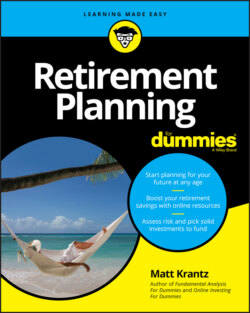Читать книгу Retirement Planning For Dummies - Matthew Krantz - Страница 26
Eyeing your expenses
ОглавлениеWhen it comes to tracking your money, you need to know a few things about your expenses:
Category: Classify what you're spending into groups, such as food, transportation, and housing. Then break down these groups further into subcategories. For example, food is composed of groceries and dining out, and transportation includes gas for your car and bus tickets. Keep in mind, too, that some of your costs are necessities (such as rent and groceries) and others are discretionary (for example, concert tickets and dining out).
Amount: Tally these costs. Even seemingly small expenses can add up over time.
Frequency: Some expenses are weekly, such as a grocery store run. Others occur monthly, such as utilities. And still others are due once or twice a year, such as property taxes. You might be feeling rich one month, only to be blindsided by a semi-annual auto insurance bill the next.
Tax deductibility: Some expenses might be associated with your business or deductible at tax time for other reasons. Keep track of tax-deductible expenses.
Savings: Okay, so savings isn’t an expense, but it’s part of your budget. Keeping track of how much you’re able to sock away helps you forecast your savings progress.
Taxes: Keep an eye on how much is withheld, or pulled out of your earnings, each pay period, so you understand how much of your income is going to the tax man.
